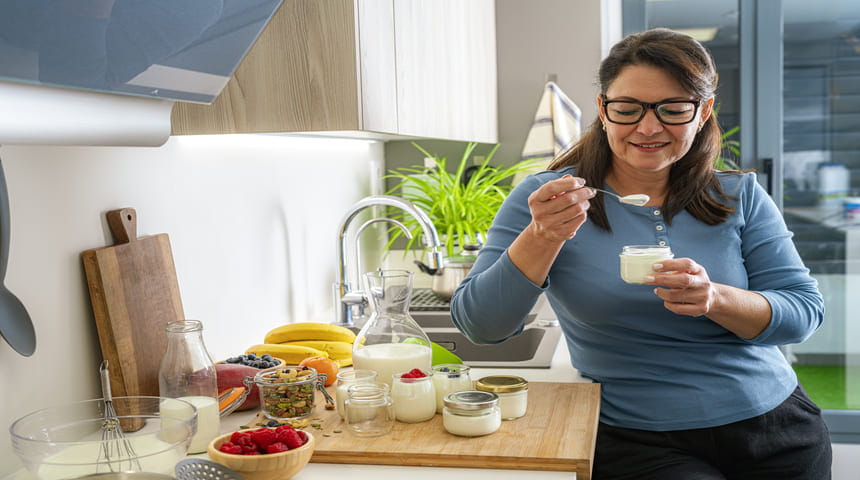You have plans for the day, but before you can get started, the abdominal pain starts. Whether it is accompanied by diarrhea or constipation, the pain may only go away for a while once you defecate — but it may come back, keeping you in the bathroom, ruining your plans and your day. Although anyone can have stomach discomfort occasionally, if you have had these symptoms three days a month for the past three months, you may have irritable bowel syndrome (IBS).
Unpredictable Symptoms
While abdominal pain is the common denominator in IBS, other symptoms like diarrhea, constipation, gas or bloating may vary or even change over time. The unpredictability of the symptoms — when they might occur or for how long — makes IBS not just uncomfortable but incredibly frustrating.
You may feel anxious about going out, being in unfamiliar places or roaming too far away from a restroom. Unfortunately, anxiety can exacerbate IBS symptoms. Also, people with anxiety, depression and other mental health conditions may have a higher risk of developing IBS.
Doctors can help those with IBS manage their symptoms, but currently there isn't a cure. Lifestyle changes may play the most critical role in helping eliminate possible triggers for IBS episodes, however.
Food Triggers
Many with IBS compounded by diarrhea find it helps to avoid large meals or those that are high in fat. Avoiding fried foods, coffee, caffeine and alcohol also can help. Fructose and sorbitol can cause stomach issues because they can be poorly absorbed. Other foods — even healthy ones such as beans, cabbage, broccoli, raisins and onions — can cause gas.
Adding fiber to your diet might help, whether for diarrhea or constipation, but this needs to be done gradually because too much fiber and not enough hydration can cause or worsen constipation.
It may help to eliminate certain foods from your diet and determine if your symptoms continue. Add the food back a little at a time to decide if that is a trigger. Some people with IBS find they have difficulty absorbing products with gluten, so this may be an area to examine.
Even as you experiment with the types of foods you eat, it is vital to stay nourished. Researchers believe that certain types of carbohydrates can trigger IBS symptoms, and following a low FODMAP diet, which is low in those specific carbs, can help.
Other Lifestyle Changes
In addition to minimizing food triggers to manage IBS, increasing activity can help. It sounds counter-intuitive: Who wants to work out with a stomach ache? But studies show that exercise helps the digestive function, decreases stress and improves self-esteem.
Other healthy lifestyle components, such as drinking water and getting enough sleep, also can help your system function more efficiently.
When dietary changes and increased activity aren't effective alone, medicines can help address symptoms. Prescription medicines designed to stop pain, diarrhea, constipation, bloating and gas, and antidepressants and behavioral therapy are options to help manage IBS.
Keep in mind that triggers for IBS may vary from person to person, so what may affect you may not pose a problem to someone else. Likewise, just as symptoms may change over time, the triggers may change too. It's critical to notice these changes and adjust your diet or activities in response.
If you have IBS and the lifestyle changes you are making are not sufficient, talk with your doctor to rule out other illnesses and to discuss alternative approaches for managing this condition.
Choose to Stay in Touch
Sign up to receive the latest health news and trends, wellness & prevention tips, and much more from Orlando Health.
Sign Up





